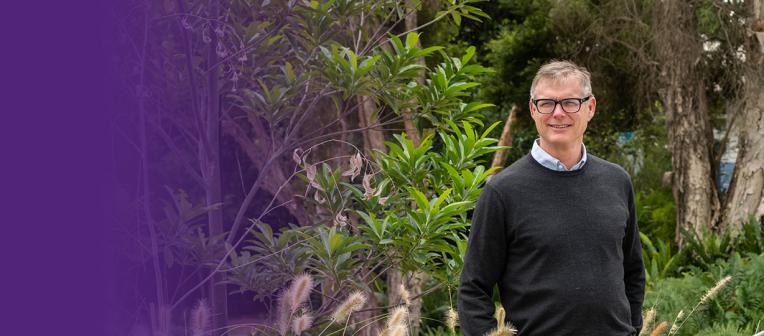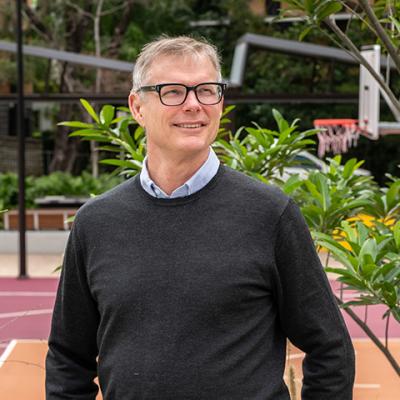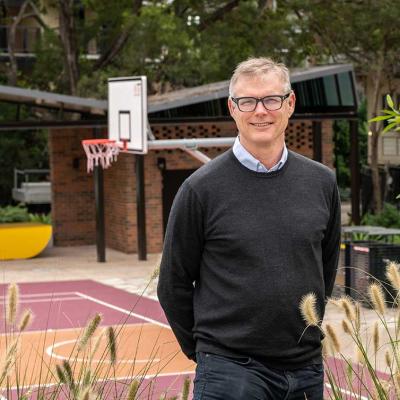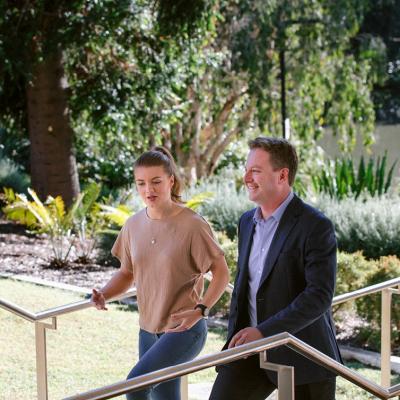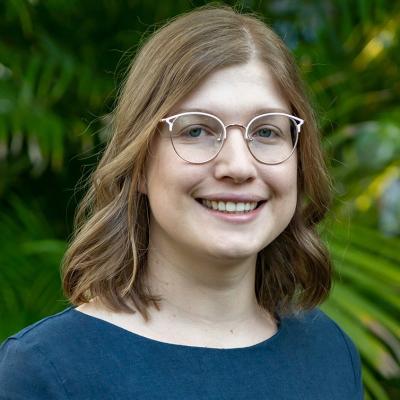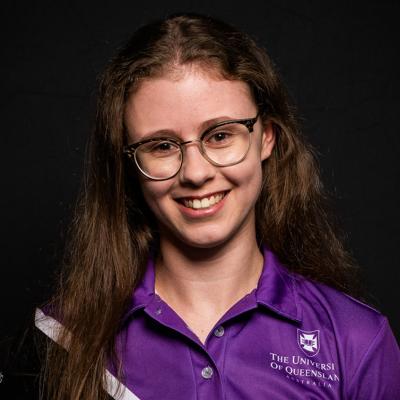Sports are an intrinsic part of life for many Australians, but few of us are as connected to the field as Sean Tweedy.
Sean has played sports for as long as he can remember. And he’s worked in physical activity roles since he was 19, almost entirely in roles dedicated to helping people with disabilities access and enjoy sports.
So now, as an Associate Professor in UQ’s School of Human Movement and Nutrition Sciences, he naturally exudes a passion that transforms his teaching and lights a similar spark for his students – sometimes even moving them to continue studying with him as PhD candidates.
Let’s learn a little more about what led Sean here, what inspires him, and why he thinks human movement and nutrition sciences is such an exciting field to study.
What does Sean teach at UQ?
While his work leading UQ’s Para Sport and Adapted Physical Activity Research Group keeps him busy enough already, Sean also finds time to teach 2 areas within our undergraduate programs:
Sean believes the programs in this area* provide a great balance of breadth and direction. His students go on to work in an exciting variety of fields.
*These programs are:
“It really suits people who like being physically active and who are interested in helping people, whether that be through enhancing fitness, recovering from injury, optimising nutrition, or research,” he says.
“However, it remains a multi-destination field – our graduates end up working in population-level health promotion fields, in cellular- and systems-level physiology and biology, biomechanics, clinical investigations and sports administration.”
What inspires Sean?
When it comes to sport, Sean doesn’t have a specific memory of where it all started. Rather, it’s just been a key part of his life for, well, all his life.
“It was a big advantage growing up … my father was in the army, so we moved a lot, and I went to 9 different schools,” he says.
“I enjoyed playing a lot of different sports reasonably well, and that provided me with great avenues for fitting in and making friends.”
The “reasonably well” may be putting it modestly. Sean went on to win 3 first grade premierships with the UQ Rugby club. And if that sounds like some déjà vu, that’s because Sean’s father Michael and his sons Conor and Seamus have all won this too. You might say sporting excellence runs in the family.
Sean’s general love for sport soon evolved into a particular passion for supporting people with disabilities. He has an early memory, from 10 or 11 years old, of reading Alan Marshall’s autobiography, I Can Jump Puddles.
“Alan Marshall contracted poliomyelitis as a young child, and the book is his story of growing up in smalltown Australia with a significant physical disability,” says Sean.
“It was published in 1955, well before the value of equity and diversity was recognised, and I know that I was struck by Alan’s incredible forthrightness, courage and self-belief as he strove to keep up with the other kids and pursue physical competencies – like jumping puddles – in the context of severe disability.”
It was roughly 10 years later when Sean got to start pursuing this passion professionally.
“When I graduated with a Bachelor of Human Movement Studies from UQ, my first job was at the Sporting Wheelies and Disabled Association, designing strength and conditioning programs for members – I was their first gym instructor,” he says.
“My first day was incredibly challenging – I felt way out of my depth – but the people were great, and I went home feeling absolutely pumped that I had a job in which I worked exclusively with people who had met with significant adversity but were getting on with their lives.”
“It was the same sort of feeling that I had felt when I read Alan Marshall’s book. And I still get that feeling 35 years later.”
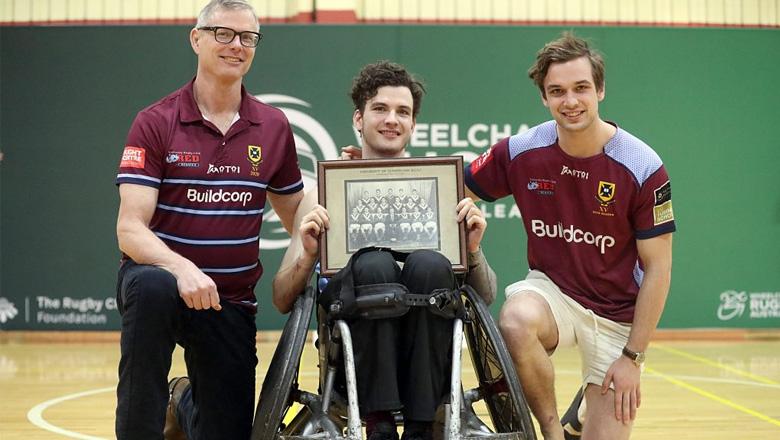
Sean, Conor and Seamus Tweedy. Photo courtesy of UQ Rugby Football Club.
What brought Sean back to UQ as a teacher?
Sean worked at Sporting Wheelies for 10 years before taking a position at the Queensland Academy of Sport ahead of the Sydney 2000 Olympic and Paralympic Games. While the job there was rewarding, he soon realised something was missing.
“It took me about 12 months to realise I really missed working with people with disabilities, and so I started hunting for opportunities in the area,” he says.
The opportunity he was looking for came with the establishment of Queensland’s Motor Accident Insurance Commission (MAIC) in 1996. Working with Professor Bruce Abernathy, Sean convinced MAIC to invest in a teaching, research and community service fellowship in physical activity and disability based at UQ’s School of Human Movement and Nutrition Sciences.
“I was the inaugural MAIC Research Fellow in Physical Activity and Disability, and I have been at the University since February 1997, a smidgen over a quarter of a century,” says Sean.
“With the imminent establishment of a Paralympic Centre of Excellence on campus, I don’t think I will be going anywhere else anytime soon.”
Now, as a teacher, Sean brings his passion for sports and helping people with disabilities to the classroom every day. He hopes that his efforts in the disability and physical activity space will produce graduates who are ready to work with all kinds of people.
“Even if they’re not devoting their lives to working with people with disabilities – they can go into a whole lot of different areas – but they’re going to come across people with disabilities in those contexts as well,” he says.
“What I want for my students is that, when that happens, they’re able to confidently engage with those clients and make sure that they get the best possible outcomes.”
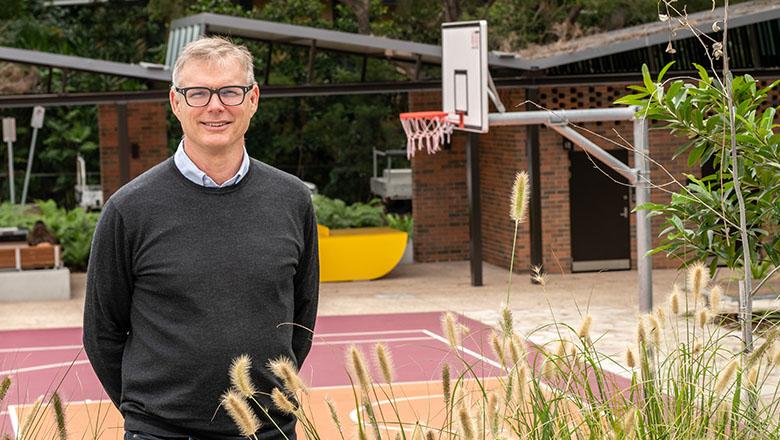
Sean believes experience is critical for any teacher, and this is one of the most valuable things he draws on in his role at UQ.
“You really need to be engaged in an area to teach well,” he says.
“Personally, I’ve never done anything other than working with people with disabilities – I’ve done it since I was 19 years old.”
His experience as a rugby player has also helped shape Sean’s teaching style, motivating him to take a direct and straightforward approach.
“It’s fair to say that rugby is not without its risks, and I played fully aware of what those risks were,” he says.
“Teaching in the area of disability, there are a range of areas that are both sensitive but important for students to understand, and in my teaching I will risk pushing boundaries and challenging students to introduce them to these ideas.”
There’s never been a better time to study human movement and nutrition sciences
“Now is a great time to be working in this area,” says Sean.
He calls out 2 big-picture reasons for this:
“There’s going to be an enormous amount of activity, so people with that passion to work in the area are going to get opportunities for incredibly rewarding careers that are going to be financially rewarding as well.”
With these exciting factors in mind, Sean would encourage any student with a passion for sport to study human movement and nutrition sciences. But he also thinks it’s a valuable program for those who aren’t yet sure where their passions lie.
“It’s a multi-destination degree and a fantastic area to study for anybody who is interested in health promotion, physical activity, sport, rehabilitation, or nutrition,” he says.
“Because of its breadth, it is also a worthwhile option for students who are uncertain about exactly which direction they want to follow for their career.”
Explore the Bachelor of Human Movement and Nutrition Sciences Meet other teachers at UQ

